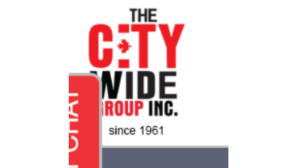Introduction
The Project Management Professional (PMP) certification is one of the most respected credentials in the business world. It validates your ability to lead, manage, and deliver successful projects across various industries. However, the rigorous nature of the exam can intimidate many aspiring candidates. Some, desperate to pass, are tempted to take unethical shortcuts — including hiring others to take the test for them.
While this may seem like an easy way out, it’s one of the most serious violations of PMI’s (Project Management Institute) ethics code. The consequences can permanently damage your professional career and reputation.
The Temptation to Cheat: A Risky Shortcut
Many individuals who search for terms like pay someone to take PMP exam do so out of anxiety, fear of failure, or limited preparation time. They might feel overwhelmed by the extensive syllabus, strict exam conditions, and the financial investment required. Some may even encounter websites or individuals claiming they can “guarantee” a passing score by taking the exam on their behalf.
What these candidates fail to realise is that such offers are fraudulent and illegal. The PMP certification process involves rigorous identity checks, proctored environments, and digital surveillance that make impersonation nearly impossible. Even if someone manages to deceive the system momentarily, PMI’s verification process eventually detects inconsistencies in candidate records, resulting in severe penalties.
The idea of outsourcing your exam might seem like a shortcut, but it’s a shortcut to disaster. The PMP credential is designed to assess your actual project management knowledge and decision-making skills. Paying someone else to take the test doesn’t just break the rules — it undermines the very purpose of becoming a certified project manager.
PMI’s Code of Ethics and Integrity Standards
The Project Management Institute operates with a clear and strict code of ethics emphasising honesty, fairness, and responsibility. Every PMP candidate must agree to uphold these values when applying for the exam. PMI’s global reputation relies heavily on maintaining the integrity of its certifications, ensuring that every holder has genuinely earned their credential.
To enforce these standards, PMI employs advanced identity verification and monitoring measures. Candidates must present valid identification, undergo facial recognition, and be observed throughout the exam, whether taken at a testing centre or online. Additionally, PMI routinely audits candidate activities to ensure compliance with its policies.
Attempting to cheat or commit fraud — including paying someone to take the PMP exam — violates these ethical standards. PMI treats such cases with utmost seriousness, as they compromise not only the credibility of the individual but also the reputation of all certified professionals.
What Happens If You Get Caught
PMI’s penalties for exam misconduct are severe and lasting. The moment a candidate is caught engaging in fraudulent activities, their application and certification are immediately revoked. The individual is permanently banned from pursuing any PMI credential in the future.
Beyond PMI’s direct actions, the consequences extend into the candidate’s professional life. Employers often conduct background checks that include certification verification. Once discovered, a revoked PMP certification can destroy an individual’s career prospects, eroding trust among employers, colleagues, and clients.
In some cases, depending on the nature of the fraud and jurisdiction, individuals may face legal repercussions for identity theft or academic dishonesty. What initially seemed like a harmless “shortcut” could escalate into financial penalties, job loss, or even criminal charges.
Simply put, paying someone for your PMP exam doesn’t just risk losing your certification — it risks losing your career.
The Real Cost of Taking Shortcuts
While the idea of passing the PMP exam without effort may seem appealing, the real cost of such behaviour is far greater than the exam fee itself. A PMP certification represents more than just a piece of paper; it signifies your ability to lead, manage, and deliver projects with integrity. When you pay someone to take your exam, you’re undermining your own professional credibility.
Project management relies heavily on trust. Employers and clients expect PMP-certified professionals to demonstrate ethical behaviour and sound judgment. If you’ve earned your credential dishonestly, you’ll struggle to perform at the expected level, which can quickly expose your lack of real expertise.
Moreover, PMI takes pride in maintaining the global credibility of its certification. Each candidate’s misconduct weakens the trust in the certification community as a whole. True success in project management doesn’t come from taking shortcuts — it comes from consistent effort, preparation, and integrity.
Better Alternatives to Cheating
If the PMP exam feels overwhelming, remember there are legitimate and effective ways to prepare. PMI and its authorised training partners offer a range of study materials, online courses, and workshops designed to help candidates understand the exam structure and content.
Joining PMP study groups or online communities can also be highly beneficial. You can exchange tips, discuss challenging concepts, and learn from the experiences of others who have successfully passed the exam. Many professionals find value in taking practice tests and simulated exams to build confidence and time management skills.
Another option is enrolling in a PMI Registered Education Provider (R.E.P.) program. These courses are specifically designed to align with the PMP exam’s latest version and ensure you meet the required 35 contact hours of project management education. These legitimate paths not only help you pass but also prepare you for real-world project challenges.
Protecting the Integrity of the PMP Certification
The global value of the PMP credential lies in its integrity. Employers hire PMP-certified professionals because they trust the certification’s rigour and credibility. Every candidate who earns it through honest means contributes to maintaining that reputation.
When individuals engage in fraudulent practices like paying someone else to take their exam, it weakens the overall respect for the credential. Upholding ethical standards ensures that every PMP-certified professional represents excellence, skill, and integrity — the very principles the certification was built upon.
By committing to ethical preparation, you not only protect your career but also help preserve the global reputation of the PMP program and the project management profession as a whole.
Conclusion
The PMP exam is designed to challenge your knowledge, discipline, and leadership abilities. It’s not meant to be easy — it’s meant to be earned. Temptations like pay someone to take PMP exam may promise quick results, but they come with devastating consequences. PMI’s strict penalties ensure that only those who uphold ethical standards succeed in becoming true project management professionals.
Instead of seeking shortcuts, invest your time and effort in legitimate exam preparation. Your hard work will not only earn you a globally respected certification but also build the confidence and competence that every great project manager needs.
In the end, honesty isn’t just the best policy — it’s the foundation of genuine professional success.








